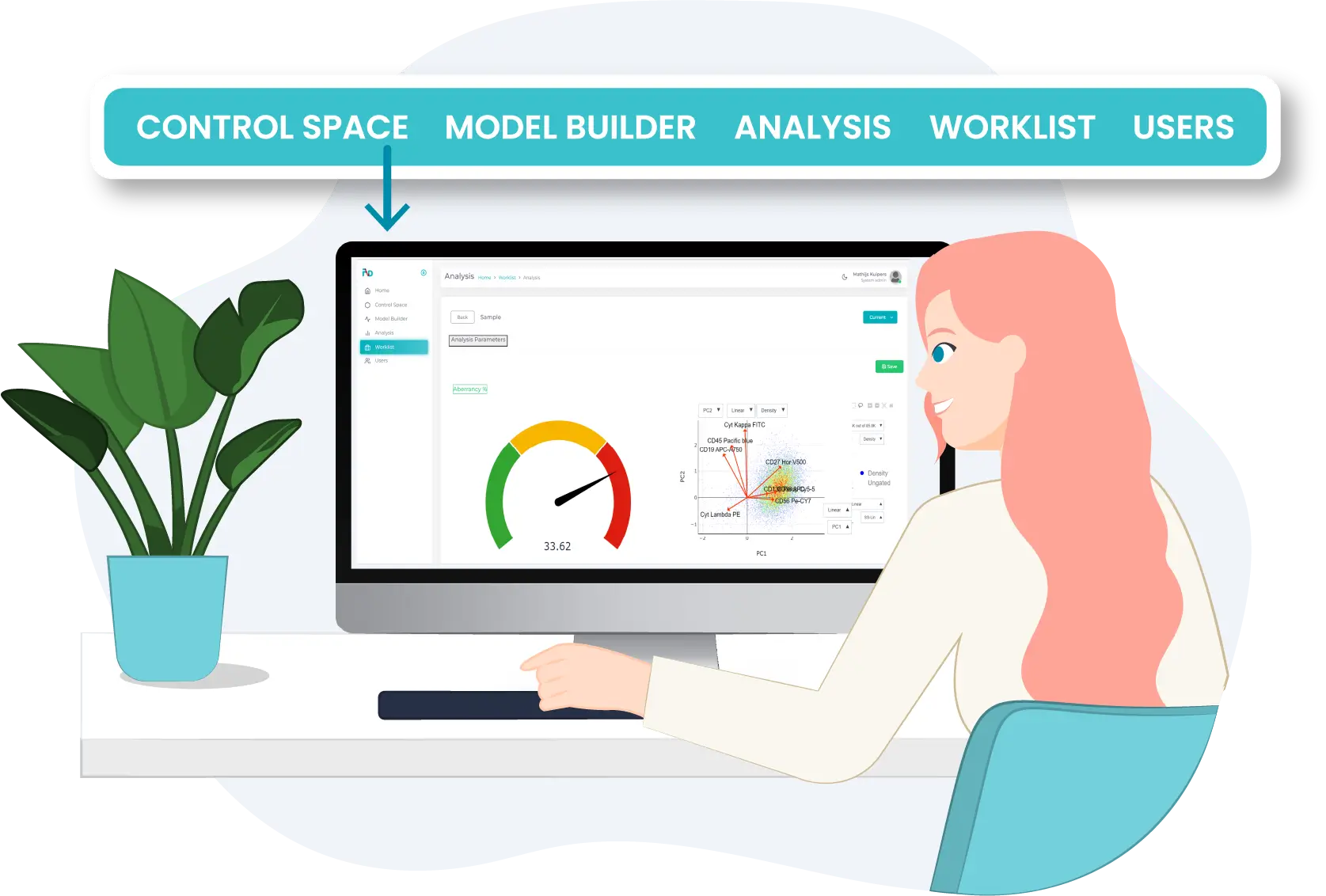


AI for transparent and actionable recommendations.
Helping healthcare professionals for informed decisions.
Reducing processing time, focusing on patient care.
Contributing to medical knowledge and research.
While Asudes provides crucial insights and data analysis, it is designed to support decision-making in clinical research and patient care.
Decision support platforms are essential in both research and clinical settings within the field of flow cytometry. They equip researchers and clinicians with necessary tools and resources.
These platforms make the analysis and interpretation of flow cytometry data easier. As a result, they enable users to extract meaningful insights from complex datasets.
Upon its launch in 2024, asudes will be accessible as a cloud-based service, ensuring convenient access worldwide. For subscription details and how to integrate asudes into your operations, we encourage potential users to subscribe to our newsletter.
Yes, training and support will be provided for all new users by our clinical scientist and application specialist of asudes. We will ensure you can fully use the platform’s capabilities. It includes dedicated resources for training and ongoing support post-launch.
The pricing model for asudes will be subscription-based. Our pricing model involves a subscription fee per clinical indication which enables access to our decision support platform customized to specific medical indications.
There is a one-time setup fee covering initial customization and configuration. For Contract Research Organizations (CROs), we offer custom pricing models customized to their unique needs and usage patterns.
At FlowView Diagnostics, making sure the privacy and security of our your data is the most crucial to us. We take data security very seriously and stick strictly to GDPR regulations to protect personal information.
Our thorough approach includes strong encryption methods, access controls, and regular audits to protect data integrity. Additionally, we implement stringent privacy policies and provide user-friendly mechanisms for data management.
Yes, asudes is being developed to ensure compatibility with a broad range of flow cytometry equipment via API’s. It allows seamless integration and processing of data from various instruments. This flexibility makes asudes a versatile tool for better flow cytometry analysis across different platforms.
Upon its launch in April 2024, healthcare professionals, clinical researchers, medical schools, research institutes, and Clinical Research Organizations (CROs) will find great value in our AI-driven solutions.
Asudes is designed for anyone seeking to streamline complex data analysis and improve decision-making processes in the realm of flow cytometry.
Do you have any additional questions? Contact us →
Get the best!